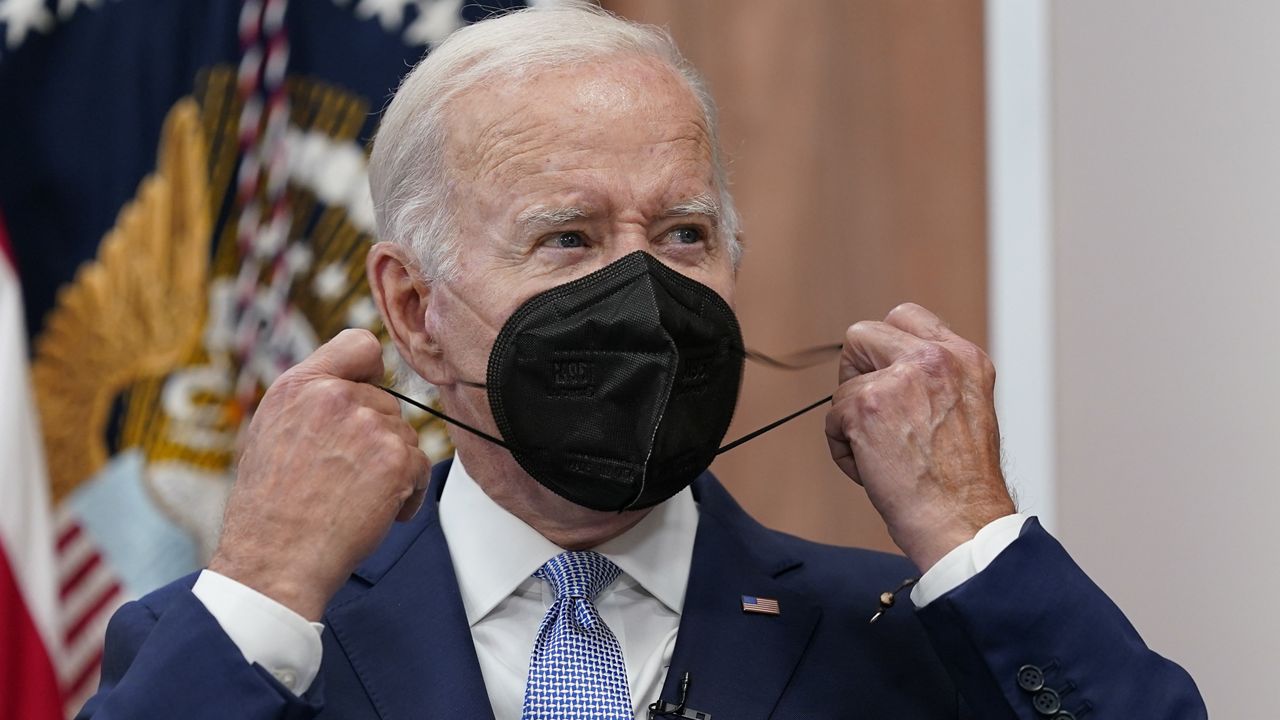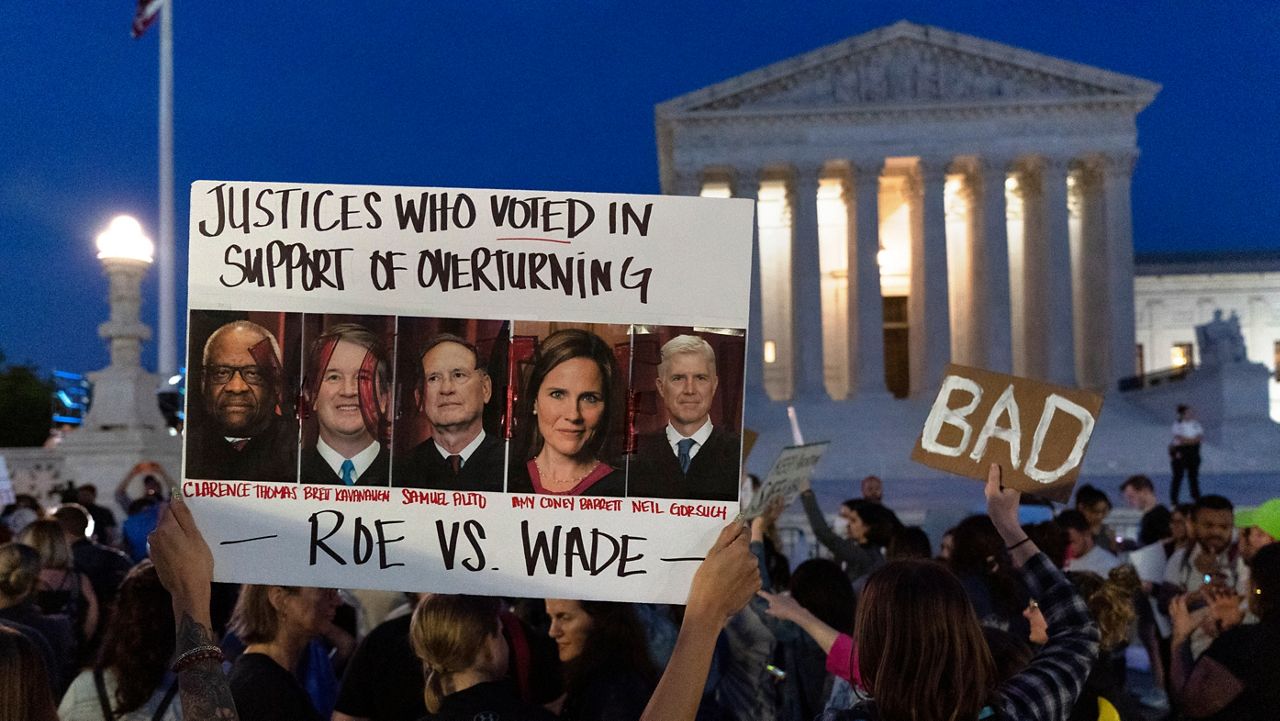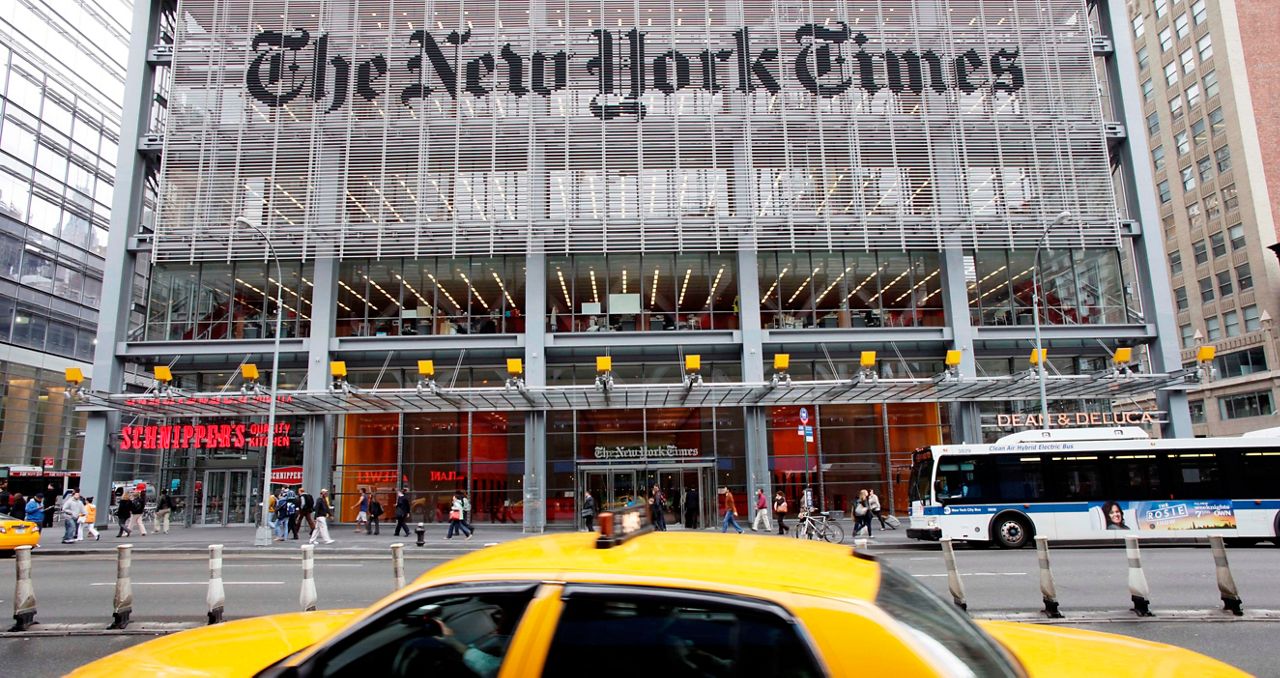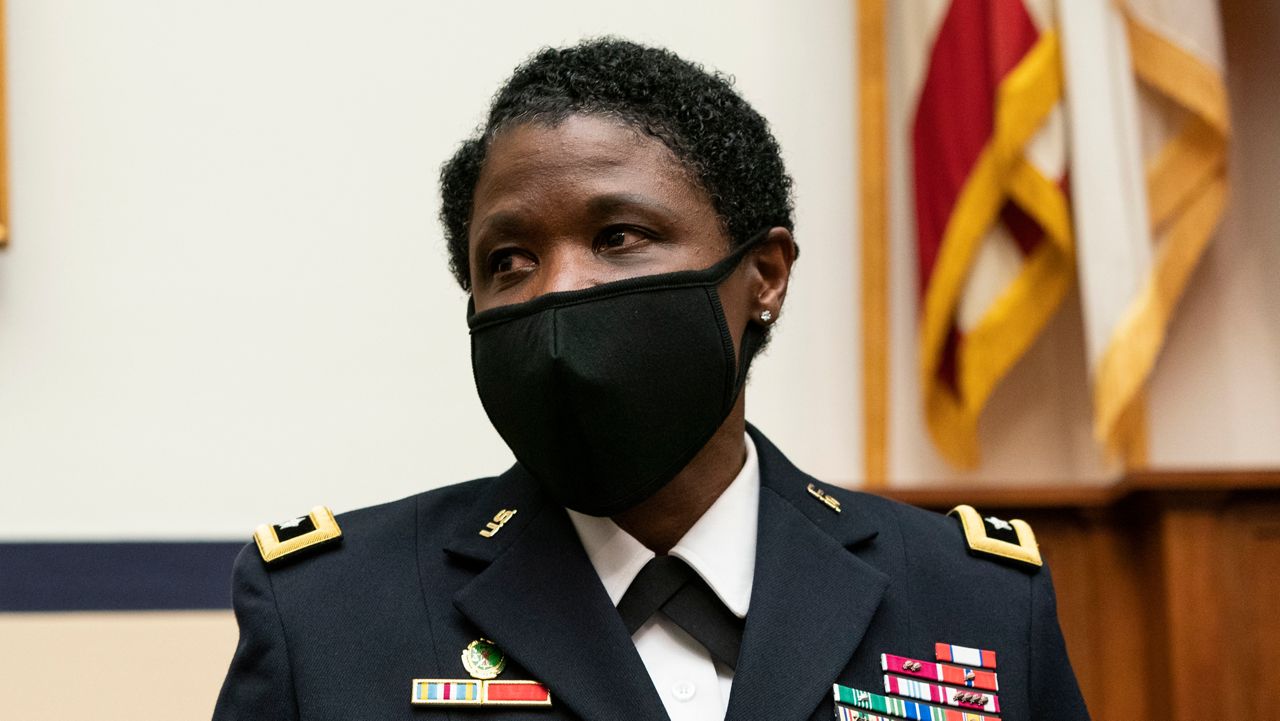President Joe Biden and Vice President Kamala Harris met privately with the family of George Floyd at the White House on Tuesday on the one-year anniversary of Floyd’s murder – a meeting that the family said they were deeply grateful for, even as Senators continue to slow-roll negotiations on the federal police reform bill named in Floyd's honor.
Speaking to members of the press after their sit-down, Floyd's brothers, newphew and family attorney Ben Crump praised the meeting as "genuine" and "productive," despite disappointment that lawamakers failed to deliver on the president's May 25 deadline to pass the George Floyd Justice in Policing Act.
For his part, Floyd's nephew, Brandon Wiliams, relayed that Biden "wasn't happy" about the stalled negotiations, but notedthat the president "just wants the bill to be right" and that it "holds George's legacy intact."
Biden, Williams said, stressed that he wanted to be the “right bill,” not a “rushed bill," a sentiment reiterated by Crump.
"I know the president was very personal because he got to know this family over the years, and he wanted to check on them on today of all days to see how they were doing," Crump said. "To reiterate that they are still doing everything to make sure that his legacy is respected."
"He said that he doesn't want to sign a bill that doesn't have substance and meaning," Crump continued. "So he is going to be patient to make sure it's the right bill, not a rushed bill."
But when George Floyd’s brother, Philonise Floyd, approached the podium, he seemed to look past the cameras to address senators outright: “If you can make federal laws to protect the bird which is the bald eagle, you can make federal laws to protect people of color."
The family then headed to Capitol Hill to meet with lead Senate negotiators to discuss the legislation.
In a statement issued after the meeting, President Biden said that former Minneapolis police officer Derek Chauvin being found guilty of Floyd's murder "was another important step forward toward justice," but added that "our progress can’t stop there."
"To deliver real change, we must have accountability when law enforcement officers violate their oaths, and we need to build lasting trust between the vast majority of the men and women who wear the badge honorably and the communities they are sworn to serve and protect," Biden continued. "We can and must have both accountability and trust and in our justice system."
Biden praised the ongoing negotiations on the bill, which passed the House in March, and urged them to get a version to his desk quickly.
"We have to act. We face an inflection point," the president concluded. "The battle for the soul of America has been a constant push and pull between the American ideal that we’re all created equal and the harsh reality that racism has long torn us apart. At our best, the American ideal wins out. It must again."
Vice President Harris echoed Biden's sentiments in her own statement, saying that "we need to do more."
"Congress must move swiftly and act with a sense of urgency. Passing legislation will not bring back those lives lost, but it will represent much needed progress," Harris wrote. "We must address racial injustice wherever it exists. That is the work ahead."
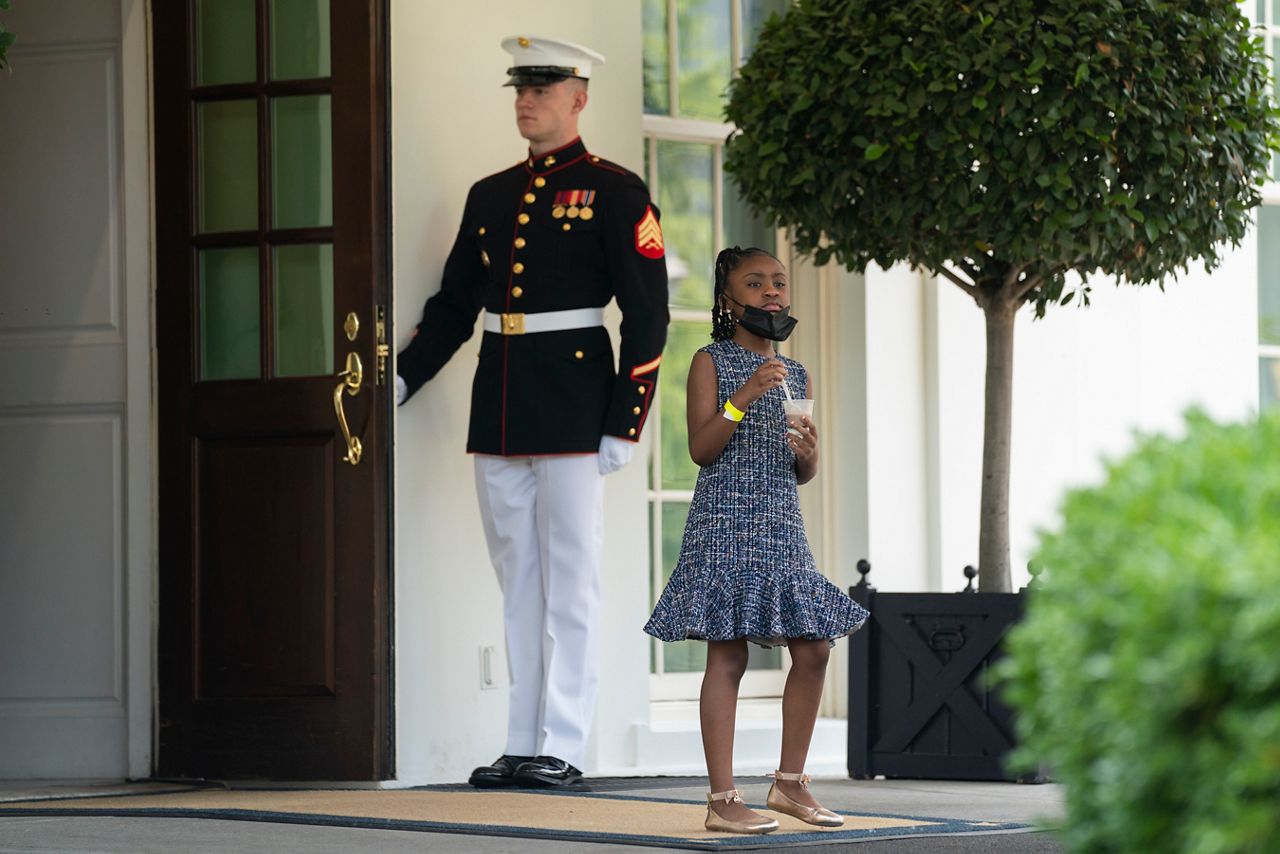
Both Biden and Vice President Kamala Harris have previously stressed the need for lawmakers to pass the George Floyd Justice in Policing Act, which aims in part to combat racial discrimination and excessive force in policing.
“A measure of justice isn't the same as equal justice,” Harris said, just hours after Chauvin was convicted of murdering Floyd.
“This verdict brings us a step closer, and the fact is, we still have work to do," she added. "We still must reform the system.”
Biden also praised the Chauvin verdict, saying it can be a “step forward” in the fight for racial justice.
“The guilty verdict does not bring back George,” Biden said. “But, to the family’s pain, they’re finding purpose, so George’s legacy will not be just about his death, but about what we must do in his memory.”
To that end, Biden called Floyd’s murder a “wake up call” for the country, and urged lawmakers in his first joint address to Congress last month to take action on the legislation.
"My fellow Americans, we have to come together to rebuild trust between law enforcement and the people they serve, to root out systemic racism in our criminal justice system, and to enact police reform in George Floyd’s name that passed the House already," Biden said. “We need to work together to find a consensus. But let’s get it done next month, by the first anniversary of George Floyd’s death.”
Among its provisions, the policing legislation imposes new restrictions on the use of no-knock warrants and prohibits excessive force, such as chokeholds and carotid holds, at the federal level. It would also establish a national registry of police misconduct and creates a framework to prevent racial profiling for police departments across the United States.
The Democrat-led House passed the police reform bill in March by a 220-212 vote, but it has since stalled in the Senate. One major sticking point is a so-called “qualified immunity” provision that affords most law enforcement officials sweeping protection against civil lawsuits.
Earlier this month, Sen. Cory Booker, D-N.J., said Democrats involved in the negotiations are “very determined” to end qualified immunity. South Carolina Sen. Tim Scott, the top negotiator for Republicans, said on the same day: "I'm on the exact opposite side."
Scott also told reporters that the two sides remain at an impasse over Section 1033, a section in the National Defense Authorization Act which allows the Department of Defense to provide excess military equipment to local, state and federal law enforcement agencies.
But negotiations are ongoing, with Scott telling reporters Monday that they "had good progress over the weekend, I thought. I think we can see the end of the tunnel."
"Obviously, not this week coming. I think we’re starting to see a framework," he clarified.
The two Senators and Rep. Karen Bass of California, the key trio of negotiators on the bill, released a statement Monday ahead of the anniversary of Floyd's death.
"One year ago, George Floyd’s murder awakened millions of people around the world who had never before witnessed the deadly consequences of the failures in our policing system," they wrote. "This anniversary serves as a painful reminder of why we must make meaningful change."
"While we are still working through our differences on key issues, we continue to make progress toward a compromise and remain optimistic about the prospects of achieving that goal," they continued.
Speaking to reporters Friday, White House press secretary Jen Psaki maintained that the White House has faith in the process. She also stressed Biden’s “confidence in the negotiators, who, by all accounts, are continuing to make progress."
"They’re continuing to have good discussions, and that is a positive sign," Psaki continued. "We are not going to slow our efforts to get this done, but we can also be transparent about the fact that it’s going to take a little bit more time — that sometimes that happens, and that’s okay.”









